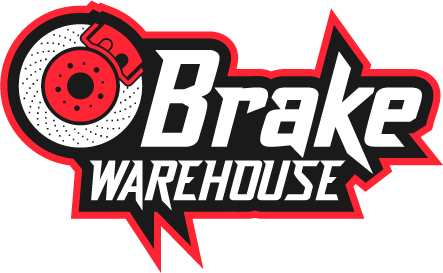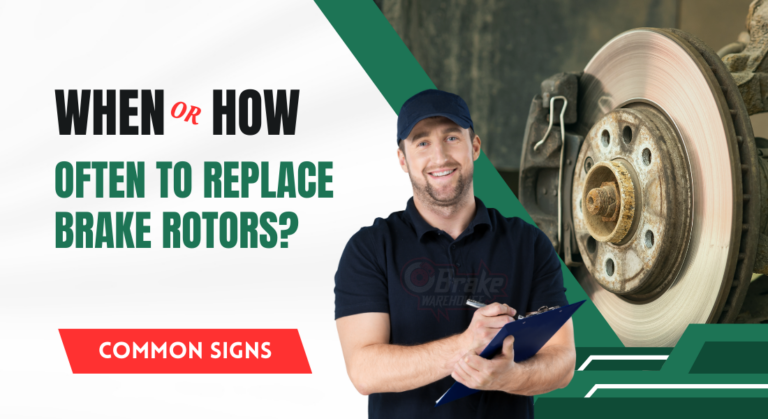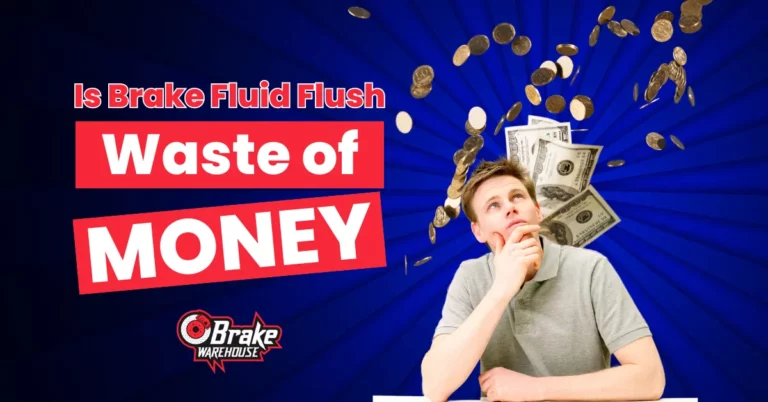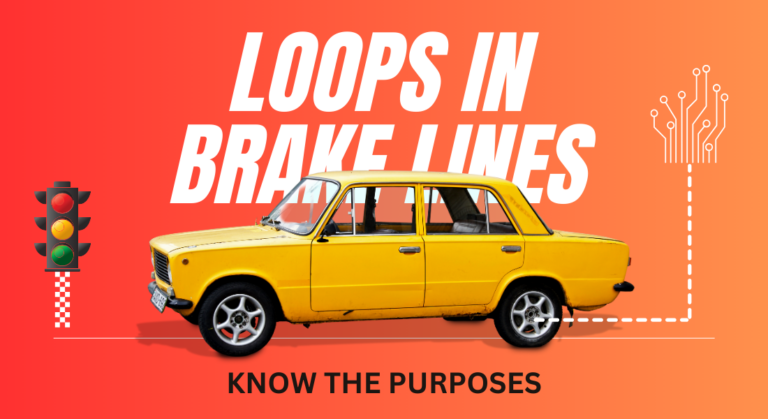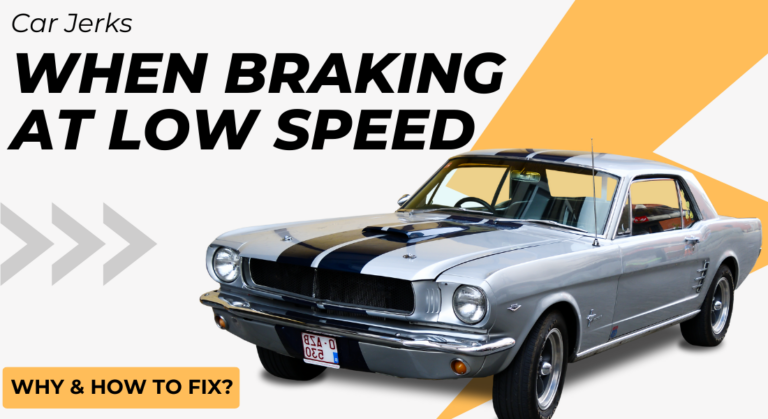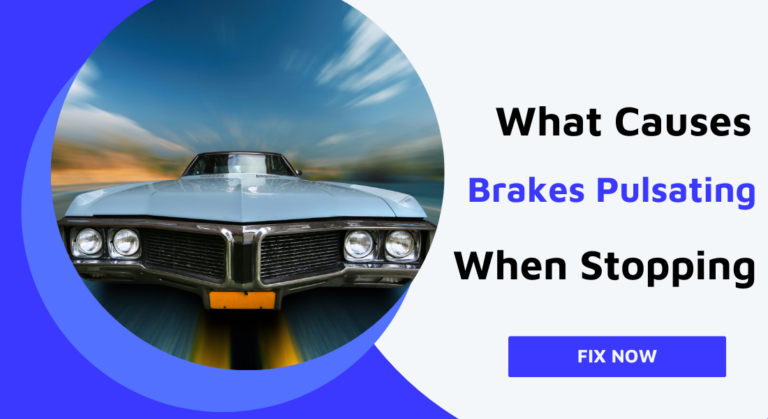Can Worn Brake Pads Cause ABS Light to Come On?(Find Now)
Vehicle safety features anti-lock brake systems (ABS) are essential in helping drivers maintain control of their vehicles. ABS is designed to prevent the wheels from locking and causing a car to skid while braking.
If there is an issue with the ABS, the driver is notified through the ABS light on the dashboard. It’s important to note that the ABS light can come on due to other parts of the system malfunctioning.
The article explores whether worn brake pads could be a possible cause for the ABS light to come on. Additionally, it discusses the different factors that may trigger the ABS light to turn on. Keep reading to learn more.

Can Worn Brake Pads Cause ABS Light to Come On?
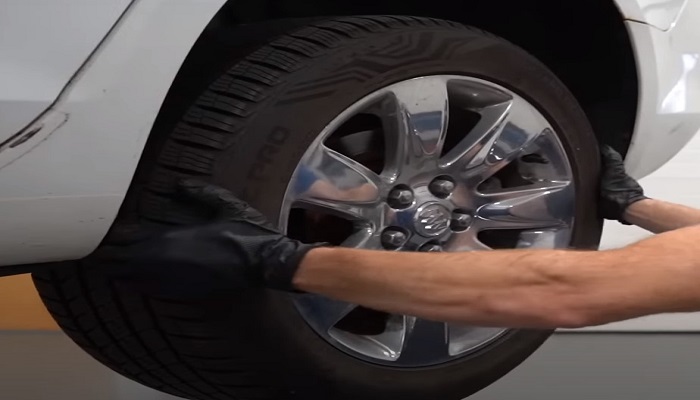
Worn brake pads can cause ABS lights to come on, though indirectly. This happens because the piston needs to extend further before it can touch the rotor and bring the vehicle to a stop.
When the piston moves farther out, the brake fluid in the system gets depleted. When ABS detects less fuel in the system it triggers the ABS light on the dashboard.
However, usually, the ABS light turns on when the fluid levels are abnormally low. Therefore, it may also mean your brake system leaks causing brake fluid to escape or evaporate.
Read Also: What Causes Brake Pedal Pulsation ABS System? – Fix Now
The Solution to Worn Brake Pads Causing ABS Light to Come On
If your brake pads are worn and causing the ABS light to turn on, the solution is simple: replace the weary brake pads. You can either have a professional take care of it or follow the steps below to do it yourself.
- Step 1. Lift the vehicle using Jack stands.
- Step 2. Removed the wheel.
- Step 3. Remove the old pads.
- Step 4. Clean the mounting surface.
- Step 5. Install the new pads.
- Step 6. Install the wheel and lower the vehicle.
- Step 7. Refill the fluid reservoir if needed.
- Step 8. Pump the brakes slowly to get the brake fluid into the system.
- Step 9. Repeat the process on the other wheels of the vehicle.
Service the calipers and brackets before installing the new pads during the replacement.
A survey by Global Brake Safety Council on Brake pad failure modes shows that almost 70% of the brake pads had 50% friction material remaining. This type of wear usually means uneven inner and outer pad wear. Failure to service calipers and brackets is among the causes of uneven pad wear.
Read Also: How Long Can You Drive Without Brake Pads? – Is It Safe
Other Causes of ABS Light to Come On
Though worn-out brake pads can cause the ABS light to come on your instrument cluster, it is not a usual cause. Most times ABS light may illuminate due to the various reasons listed below.
1. Low Brake Fluid
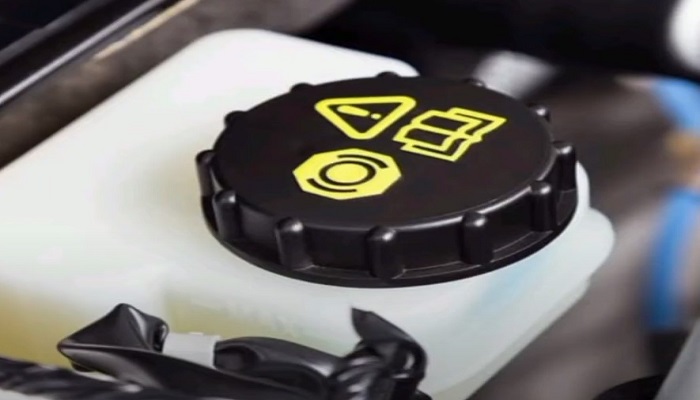
As mentioned above, low brake fluid can trigger the ABS lights, especially if it’s very low. Brake fluid reduces through leaks in the system or the hoses.
Also, worn brakes will force the piston to extend further, depleting the brake fluid in the system.
2. Malfunction in The ABS Module

One of the common reasons the ABS light comes on is when the ABS module malfunctions. The module receives information from the wheel speed sensor and decides whether to release braking pressure when braking.
The module can become faulty over time due to corrosion or damage to the sensor. Faults in the wiring or connectors can also cause problems with the module triggering the ABS light on the dash.
Read Also: Why Is Brake Pad Rubbing On Rotor? – How To Stop!
3. Faulty Speed Sensor
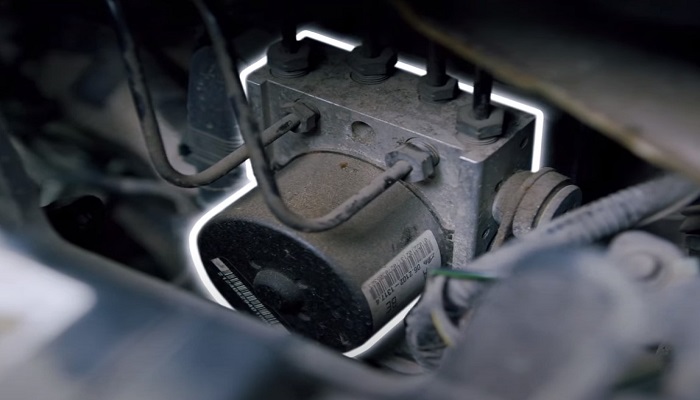
As mentioned earlier, the ABS module receives signals from the speed sensor. If the sensor becomes faulty, the ABS module detects inconsistencies and triggers the ABS light.
ABS speed sensors can become faulty due to clogging from debris on the road, including dust and dirt. The sensor can also go bad if it’s physically damaged, which can happen during a tire change or maintenance service.
4. ABS System Is Off

Another reason the ABS light may come on is if the ABS is disabled. The light comes on as a notification or warning to the driver that this safety feature is off. The system must stay on as research shows it’s effective in the prevention of road traffic crashes.
In most vehicles, you can disable the ABS on the relay or by unplugging it from the car. Some drivers prefer to drive without this safety feature, especially during a race.
However, the ABS may be off accidentally, which can happen if you bump into a switch. Damage to the speed sensor or the ABS module can disable the ABS. Also, the system may turn off if the wiring is broken or frayed.
5. A Drop of Electrical Power
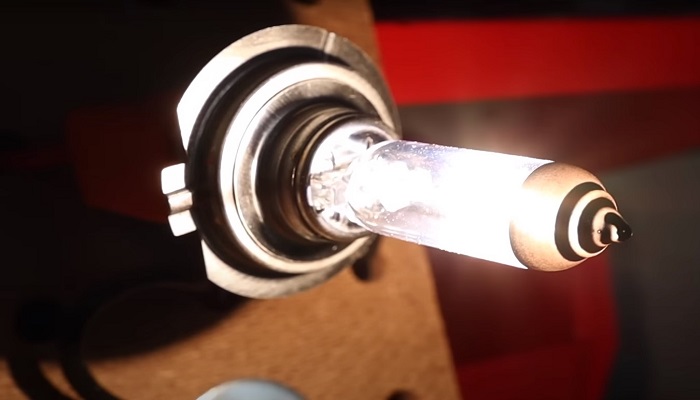
A drop in the electrical power can also be a reason the ABS light is on in your vehicle. Like most systems in the car, the ABS requires a steady supply of electric current to work properly.
A faulty battery is among the reasons the vehicle may have low electrical power, causing various systems to fail. However, most of the time, the alternator is responsible as it regulates the power when the vehicle runs.
Read Also: What Happens If My Brake Pad Falls Off? – The Consequences
Diagnosing and Solving the Causes of ABS Light Comes On
The ABS light will go off automatically after you fix the worn brake pads. However, this will only happen if the worn brake pads were the reason and if not, the light will remain on. In this instance, diagnose the vehicle further to learn the actual cause.
Your diagnosis should include:
1. Check the Braking System for Leaks
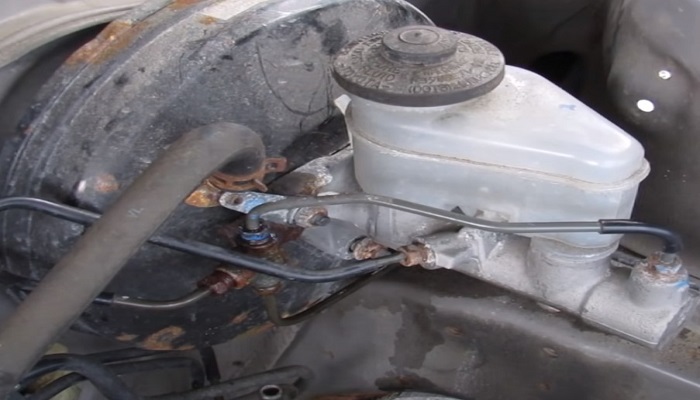
The first thing to check should be the braking system for leaks. As mentioned earlier, leaks can reduce the amount of brake fluid in the system, triggering the ABS light.
Check for yellow or brown fluid on your garage floor, which is one way of showing that your vehicle has leaks. If you spot signs of leaking brake fluid, you may have found the reason. For this, you require a professional who will pinpoint the leaking hose and change it.
Read Also: Do I Need to Pump The Brakes After Adding Brake Fluid?
2. Check Brake Fluid
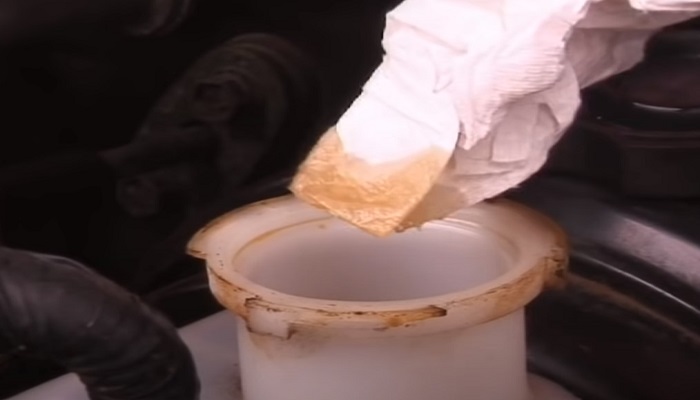
The next diagnosis step should be checking the brake fluid level to see whether it’s within range. If the vehicle didn’t have leaks, the brake fluid in the reservoir may be low and reduce as the piston extends.
Also, this is an excellent time to check the color of the brake fluid to determine whether it’s contaminated.
If it’s below the minimum line, it may be causing the ABS light to come on. Refill the vehicle with a quality brake fluid (Our pick: Pentosin 1204116 corrosion Resistant super dot 4) and check if the light goes off.
3. Check for Damaged ABS Speed Sensors
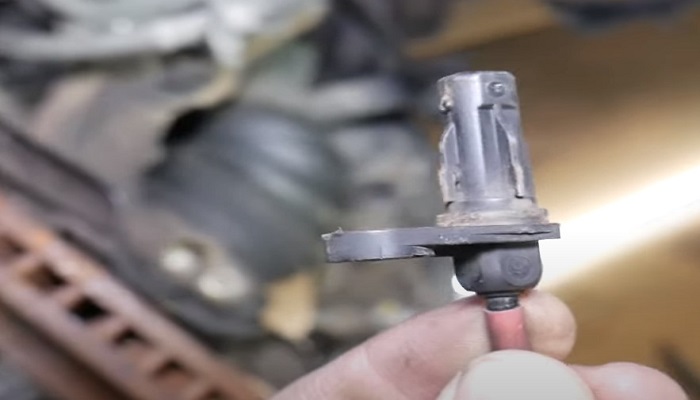
The ABS speed sensor is usually located on the vehicle’s axle and sometimes on the hubs. Observe the sensors for any physical damage or presence of debris, like mud or dust.
The ABS speed sensor wires may also be damaged, causing the problem. Check the wiring for any physical damage, like breakage or corrosion.
If the sensors are dirty or their wires broke, they may be responsible for the ABS light. Clean the sensor using warm water with soap and use a soft brush to scrub dirt and rust.
You can solder any broken or frayed wire together, but it’s usually better to replace it to prevent future problems. A soldered wire can create differences in voltage, interfering with ABS performances.
FAQs
Following are some of the frequently asked questions on this topic
Can The OBD2 Scan Tool Determine The Cause Of ABS Light?
The ODB2 can help If you have problems determining what is causing the ABS light to turn on. Run an ABS test on the scan tool to identify the problem with the ABS and provide solutions.
Will Disconnecting Car Battery Reset The ABS Light?
Disconnecting the car battery usually resets most warning lights in a vehicle, including the ABS light. However, the light will not go off if the problem causing it to come on is not fixed.
Do Faulty Brake Pads Cause Brake Warning Lights To Illuminate?
Tattered brake pads usually cause the brake light to illuminate before the ABS light. The ABS light usually comes on only when the fluid level is low, or other unrelated causes.
Read Also: What Happens If My Brake Pad Falls Off? – The Consequences
Conclusion
If your pads have deteriorated, they may lead to low fluid levels and indirectly cause the ABS light to turn on. Replacing the worn brake pads should address the ABS light issue. However, typically the ABS light illuminates due to other ABS-related issues.
In case the light persists it is recommended to diagnose the brake system to identify the underlying cause. Driving a vehicle with brake problems is hazardous, and you should seek professional assistance in diagnosing and resolving the issue.

Meet Zayan, the mechanical genius behind the highly acclaimed brakes problems and solutions website. With over a decade of hands-on experience in the automotive industry, Zayan has become a trusted authority in the realm of brake systems.
His passion for cars, coupled with his expertise in solving complex brake-related issues, has earned him a devoted following of car enthusiasts, mechanics, and everyday drivers seeking reliable guidance.
